
 Flash News
Flash News
Korça/ 40-year-old man jumps from fifth floor balcony, in critical condition
Croatia restores compulsory military service
Illegal constructions in Theth, Manja demands disciplinary proceedings against prosecutor Elsa Gjeli
Details from the murder of Renis Dobra, the perpetrators came with 2 Range Rover cars from Rrëshen
The Supreme Court left him in prison, Meta addresses the 'Constitution'
The Supreme Court in Serbia charges him with war crimes, the Kosovo Albanian will appeal the 6-year prison sentence

Kosovo citizen Nezir Mehmetaj has been sentenced by the Supreme Court of Serbia to six years in prison on charges of war crimes against the civilian population in the village of Rudicë, Klina, in 1999. His defense team has warned that it will appeal this decision.
The Supreme Court of Serbia said it had found that Mehmetaj participated in the June 1999 kidnapping of Roma civilian Jelaj Ramadan, whose remains have yet to be found. According to the court's allegations, Mehmetaj was accompanied by other members of the Kosovo Liberation Army (KLA).
The court's decision also stated that Mehmetaj was a member of the KLA and at the time was moving around the village of Rudicë wearing a KLA uniform. Nezir Mehmetaj's family has denied the charges against him. Agron Mehmetaj, Nezir's brother, told Radio Free Europe that the family does not feel "at all good" because they know that he is being held "unjustly and without any facts" in a Serbian prison.
"Everyone knows he is innocent, but there is nothing we can do," said Agron Mehmetaj. Agron stressed that the last time a family member visited Nezir was his son, two months ago.
"It's been five years now, how can he be like this, even before he went to prison he was diabetic. He wasn't in good health. How can he be like this? Like in prison," he added.
In this case, the Supreme Court said that there were six witnesses, two of whom were present in the village of Rudica at the time. The indictment against Mehmetaj stated that in mid-June 1999, he had participated in the murder of five members of the Dašić family and in late June, he had participated in the murder of Jelaj Ramadani and Zorka Šijaković.
The Belgrade High Court said that his participation in the murder of family members Dašić and Zorka Šijaković was not proven, and that Mehmetaj, in July 1999, had participated in the looting and burning of ten houses in the village that belonged to non-Albanians.
Nezir Mehmetaj's lawyer, Milliq Konstantinovic, told Radio Free Europe that he will appeal the decision, as, according to him, the court has no relevant evidence for any of the counts of the indictment. He said that the court has not accepted the evidence presented by the defense, which, according to him, shows that Mehmetaj was not in Rudica at all at the time mentioned in the indictment, but was in Switzerland.
"The court clearly based its decision on the testimony of a protected witness, who gave a very controversial statement to the prosecution. This is a person who was 14 years old at the time of these events," Konstantinovic told Radio Free Europe. He added that during the trial, the defense emphasized that Mehmetaj could not be held responsible for actions that occurred after June 1999, when the war had ended.
On 9 June 1999, the Kumanovo Agreement was signed, ending the bombing of the then Yugoslavia. After that, the Yugoslav Army and Serbian Police left Kosovo and NATO troops entered Kosovo. In its decision, the court said that the factual situation in the village of Rudica was such that the armed conflict was still ongoing and that “the withdrawal of the former Yugoslav forces was being exploited.”
The sentence handed down by the first instance court on December 6 will include time spent in pre-trial detention. The sentencing of Mehmetaj was condemned by the Speaker of the Kosovo Assembly, Glauk Konjufca, who called on the international community to “increase pressure on Serbia, with a clear voice against this injustice and in support of human rights.”
He described the case against Mehmetaj as “fabricated and arbitrary.” Nezir Mehmetaj was arrested on January 3, 2020, at the border crossing in Merdare and has been held in custody since then. That same year, Serbian judicial authorities indicted him for war crimes in Rudica, Klina Municipality, in June-July 1999.
Kosovo authorities have repeatedly demanded the release of Mehmetaj and several other Kosovo citizens who have been arrested by Serbia on suspicion of war crimes. The Kosovo Ministry of Justice in July 2024 requested that Serbia extradite to Kosovo the Kosovo citizens held there.
But the head of this ministry, Albulena Haxhiu, stated that it is difficult for Serbia to respond positively to this request, due to the continuous lack of legal cooperation. In addition to Mehmetaj, Hasan Dakaj and Tefik Mustafa are also in custody in Serbia on charges of war crimes. Meanwhile, Sadiku Duraku, who was arrested on April 17 on suspicion of war crimes, was released in October of this year.
The US State Department has called for due process for those arrested in Serbia on war crimes charges. The work of the Serbian Prosecutor's Office has been criticized in the past. According to the Humanitarian Law Center in Serbia, a lack of transparency and a lack of information - which should be publicly available - have excluded the public from these processes.
The organization's latest report also mentions the lack of witnesses. According to it, the Prosecution has not been able to secure any key witnesses for more than two years in war crimes cases. In its 2023 Progress Report for Serbia, the European Commission noted that "the pace of war crimes trials in Serbia has deteriorated in recent years" and that real commitment must be shown to solving the cases./ REL
Latest news


Malltezi: SPAK admits, we are in a process that began with Balla's false report
2025-07-10 22:34:16

Si të çliroheni nga bllokimet emocionale me anë të ushtrimeve
2025-07-10 21:57:24

Lala: Veliaj wanted to return as mayor
2025-07-10 21:40:46

VIDEO/ Brawl in Bolivian parliament, deputies physically clash
2025-07-10 21:20:30


Albania experienced one of the longest heat waves of the last decade
2025-07-10 21:01:09

The Government approves new procedures for declaring residence in e-Albania
2025-07-10 20:39:32

Koka: Northerners will not forget Edi Rama's racist operation in Theth
2025-07-10 20:18:24
The 3 zodiac signs that will be most affected by the 'Full Moon' of July 10
2025-07-10 20:04:49
New director of the National Center of Cinematography appointed
2025-07-10 19:51:12
Korça/ 40-year-old man jumps from fifth floor balcony, in critical condition
2025-07-10 19:40:19
'Tired Woman'/ The Syndrome That Affects Thousands of Women Every Day
2025-07-10 19:34:02
Jane Birkin's original Hermès bag sells for $10 million
2025-07-10 19:26:22

Britain-Ukraine agreement signed for 5,000 Thales missiles
2025-07-10 19:00:25
Fire in Zvërnec, flames endanger two hotels
2025-07-10 18:57:19
Croatia restores compulsory military service
2025-07-10 18:39:01
Spahia: The great truth of the strong accusation of the residents of Theth
2025-07-10 18:35:07


The Supreme Court left him in prison, Meta addresses the 'Constitution'
2025-07-10 17:57:21
New punishment with 'new' regulations
2025-07-10 17:54:46
EU translator fired over fears for Zelenskyy's safety
2025-07-10 17:45:37
'You are a policeman, but not God, take my soul', protest for Agon Zejnullahu
2025-07-10 17:41:21


Video/ Rama repeats the scenario, kneels before Meloni again
2025-07-10 16:56:31
He set fire to a plot of olive trees, 50-year-old man arrested in Shijak
2025-07-10 16:46:19

Rubio: US and Russia have exchanged new ideas for Ukraine peace talks
2025-07-10 16:36:20
Death of 27-year-old, Lipjan Police Commander Resigns
2025-07-10 16:21:28
Video/ An apartment burns in Tirana near the New Bazaar
2025-07-10 16:09:36


Jensila lights up the internet with her birthday greetings to Ledri
2025-07-10 15:42:08
They're full of pesticides! List of 12 products we need to be careful of
2025-07-10 15:31:04

Worker falls from scaffolding in Shëngjin, urgently sent to Trauma
2025-07-10 15:11:03
Malltezi: Within one day they seized my accounts, properties and shares
2025-07-10 15:01:23
EU: Israel has agreed to more aid to Gaza
2025-07-10 14:55:19

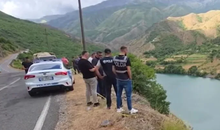
Murder of Reni Dobra, 23-year-old's vehicle pulled from the water
2025-07-10 14:29:23
Trump's tariffs on Brazil raise coffee prices
2025-07-10 14:16:07
Ursula von der Leyen survives no-confidence vote
2025-07-10 14:04:27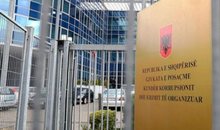

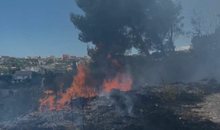
Fire in Lezha, flames near electrical substation
2025-07-10 13:32:24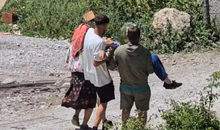
Residents clash with police in Theth, a woman faints
2025-07-10 13:24:38
"Rama and Xanun"
2025-07-10 13:15:46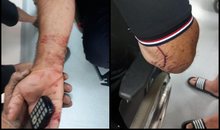

Zodiac signs most likely to get divorced in July 2025
2025-07-10 12:45:51
A scapegoat for an illegitimate Republic
2025-07-10 12:35:02
"He has devastated his own nation"/ Berisha: Rama imprisons his opponents!
2025-07-10 12:26:54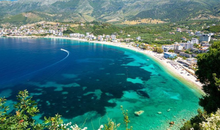

Albanian man injured with knife in Italy
2025-07-10 12:08:55
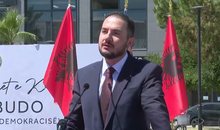

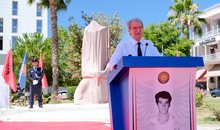


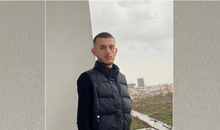
23-year-old in Mat drowned with rope, 4 suspects are being held
2025-07-10 10:58:53
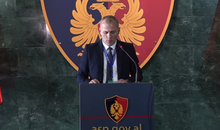
After the dismissals, the new director of the Shkodra Police is appointed
2025-07-10 10:30:10
BIRN: Rama's action for public spaces, a repeated spectacle
2025-07-10 10:29:11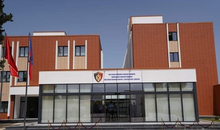
Action in Theth, Shkodra Police leaders dismissed
2025-07-10 10:16:28
Fatal accident on the Tirana-Durres highway
2025-07-10 10:01:58
The incinerator does not exist, but the government continues to increase funds
2025-07-10 09:51:45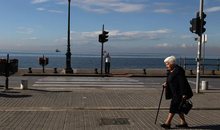
Albania is aging at a rapid pace! 30% of the population is over 60 years old
2025-07-10 09:46:23
End of an era, Modric says 'goodbye' to Real Madrid
2025-07-10 09:36:09
Mount Dukat has been on fire for 6 days, residents request air intervention
2025-07-10 09:27:24

"Poverty on the rise"/ DW: Many people in Germany are not getting paid
2025-07-10 09:08:06
Horoscope, what do the stars have in store for you today?
2025-07-10 08:51:59




The scorching heat returns, the thermometer climbs to 40°C
2025-07-10 07:58:52
Morning Post/ In 2 lines: What mattered yesterday in Albania
2025-07-10 07:46:35
Tourist operator in Theth: They are demolishing our houses without warning
2025-07-09 22:54:57

Trump and Israeli commander warn: Gaza ceasefire could be near
2025-07-09 22:13:21
Fire in Elbasan Landfill, pedagogue: It is a cancer and environmental crime
2025-07-09 21:54:47


Dangerous summer, number of snake bites increases
2025-07-09 21:22:13
Berisha appeals again: Stop state terror against the residents of Theth!
2025-07-09 21:15:36
'Kissing disease' virus linked to several forms of cancer
2025-07-09 21:04:44
Malltezi confesses after release: Justice has become a political weapon
2025-07-09 20:51:48
Vokshi: Albania's EU integration has stalled due to lack of free elections
2025-07-09 20:37:21
